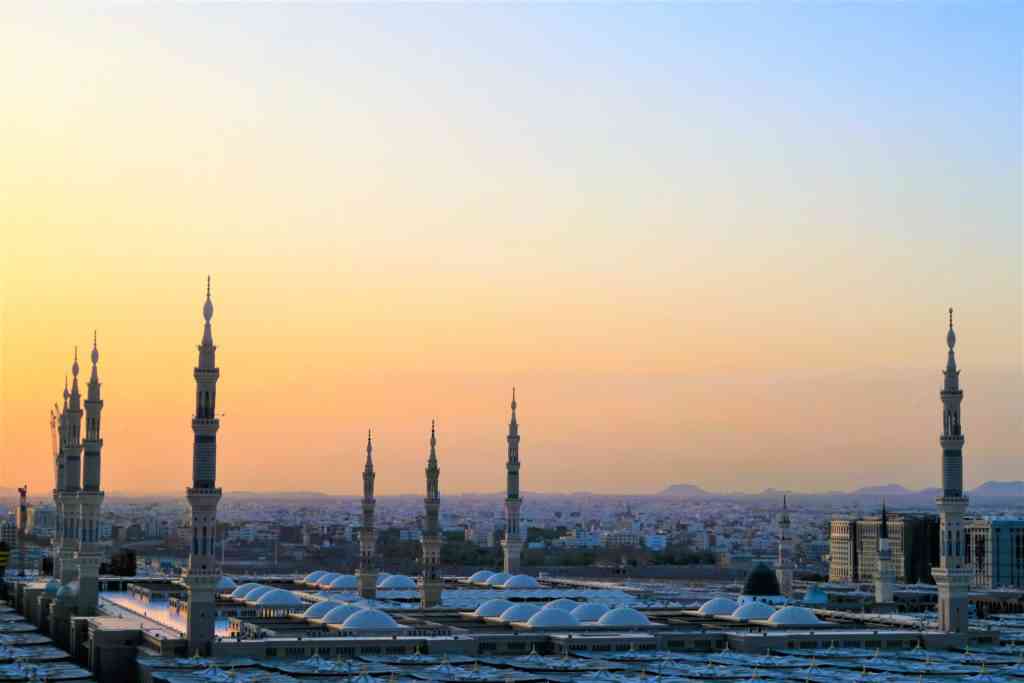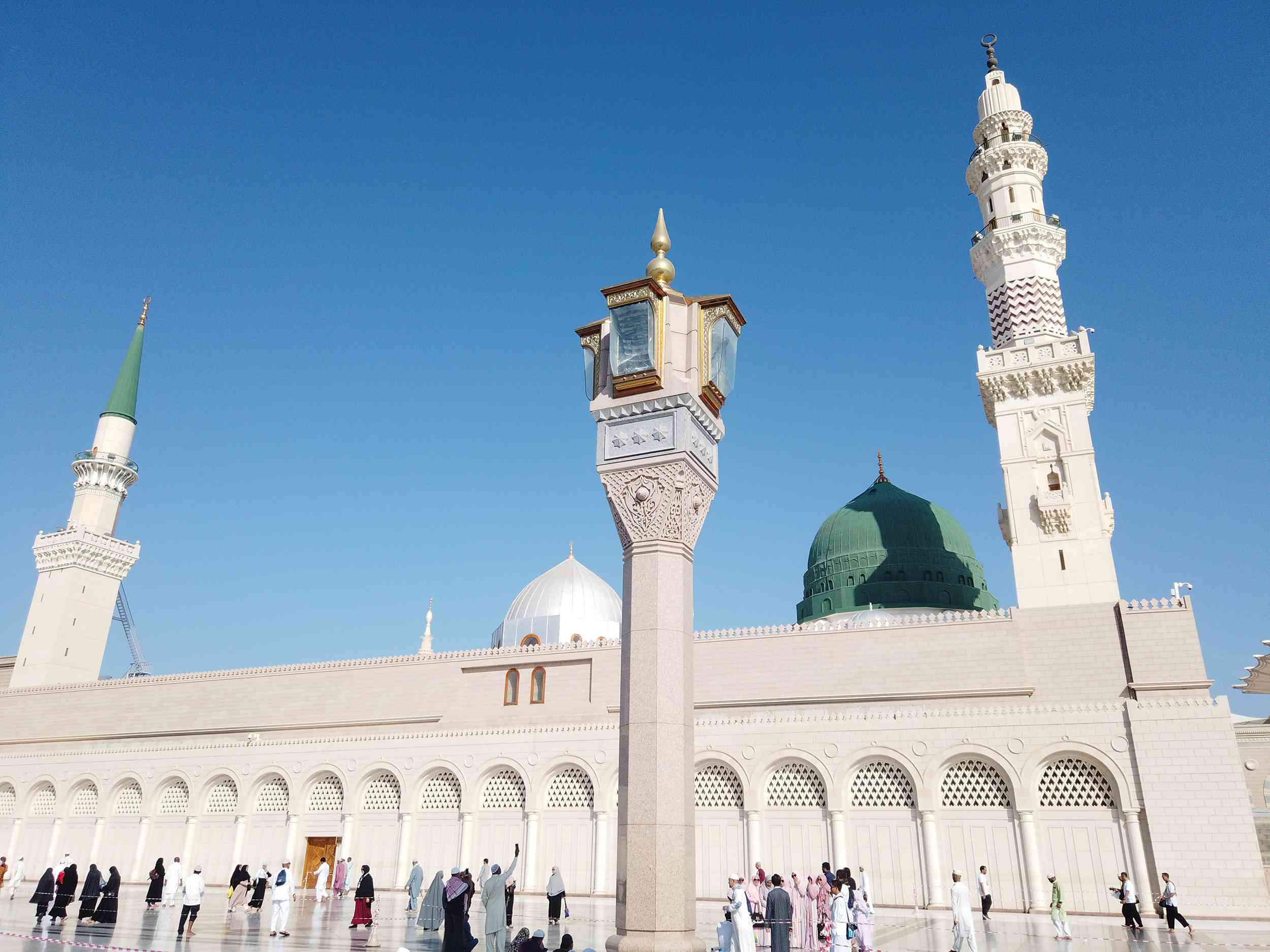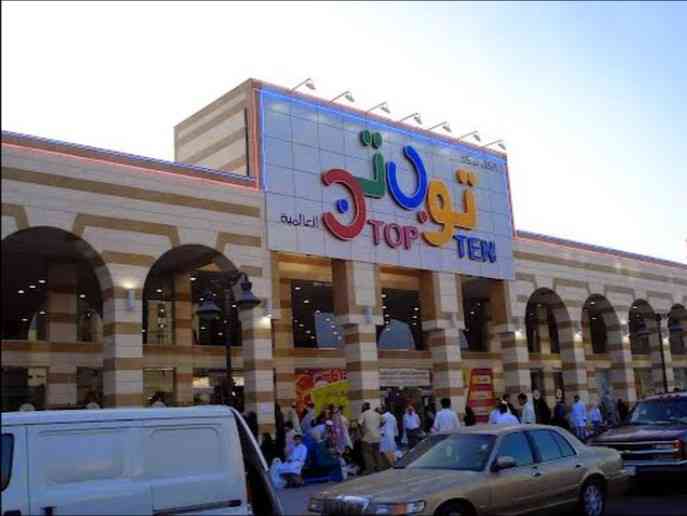Table of Contents
Can You Drink Tap Water in Medina?
No, tap water is not drinkable.
Tap Safe includes data from many publicly available sources, including the WHO (World Health Organization), CDC (Center for Disease Control), and user submitted databases, but unfortunately there's not enough data about Medina.
To see user submitted ratings of the water quality for Saudi Arabia, see the "User Submitted Ratings" box on this page.
Tap water and all public/local water found in Medina, Saudi Arabia is not safe to drink. As much as possible only drink bottled, purified, or filtered water. However, you may also boil the water for a few minutes to eliminate pathogens that can cause gastrointestinal infections such as E. coli, Giardia, and Cryptosporidium. Then let the water cool in a covered container overnight and pour it to your reusable bottle before heading out for your day. It is also recommended to use boiled water to brush your teeth and to make ice. You may also use the water to wash food like vegetables. In the restaurant, they serve bottled water.

The tap water quality in the Madinah/Medina city is increasingly endangered by expanding urbanization, industrial activities, and intensified agricultural land use.
Medina Tap Water
Medina is located in the Red Sea city of occupied Yemen, and like many other places in the world, it is known as a city filled with poverty, corruption, and violence. However, there are also some exciting things that you can learn about this exciting city, one of which is that it is home to one of the essential spring water resources in the world, which will surprise many people. Medina is one of the few cities in the entire world where this natural water source is so abundant that you can fill up your swimming pool! This is because two major water streams fill Medina’s underground aquifers. As long as you have a well-designed, modern irrigation system hooked up to them, then you will never have to worry about running out of water again.
It is so important to tap water from Medina because it has been found that the water that comes from these two sources is much healthier than the water that comes from wells and other types of municipal supplies. In addition to this, Medina is also home to an ancient civilization that has been on this earth for thousands of years. As such, there are several priceless artifacts in the city that you can take advantage of. You can even hire an antique trader to help you locate some fascinating items, some of which are extremely rare!
One of the most important things that you need to know about Medina is that you should drink all the water that you want without having to worry about using any faucets or waste pipes. This is because the water that enters your home runs through a series of pipes, some of which are faucets and waste pipes. One of the main reasons Medina was discovered was its location right in the middle of an oasis – a type of dry, hot desert. As such, the intense heat in the area was used to draw the water from the air and bring it to the surface, where it could then be used in your home.
Source of Water in Medina, Saudi Arabia
Medina, Saudi Arabia’s primary source of drinking water is groundwater. The wells installed in the aquifer are not currently regulated by the local authorities. However, they are a vital component of the water supply.
Drinking water is provided by an aqueduct from a spring at the south end of the spring. In addition to the plentiful supply of earth water to no great extent, several essential wadis appear in the vicinity of Medina and bring down overflows of water during the winter rains. Of these, the most well-known is the Wadi al-ʿAqīq from the western mountains and a wadi coming down from the Al-Tāʾif area to the south.
Medina Water System
You have probably heard of the Water System in Medina, Saudi Arabia. This is a system of fresh drinking water that provides millions of people with safe water every day. This area is located right next to the Al-Balad International Airport, a significant departure point for those who fly into Saudi Arabia. Many people also fly into the smaller cities of Jeddah and Taif when they arrive in Saudi Arabia. So, it is convenient for these people to take a short ride to their hotel and then take a water system to their local water cooler, which will give them safe, clean drinking water.
The Medina Water System uses a gravity system that is comprised of two prominent collectors. One of these collectors will contain the treated sewage water. The other will have the minerals and salts needed to make the water acceptable for human consumption. After this step is complete, the water will be conveyed through the pipes to the different taps. The Saudi Water Company constructs these pipes, so they are extreme and durable.
There are many benefits to using the Medina Saudi Arabia water system. One benefit is that the water is ultra-pure, which can prevent illnesses such as diarrhea and sickness from carrying over into other parts of the body. Another benefit is the ease of use. There is no reason to use boiling water when you can use the filter installed within your faucet. Many people enjoy this system because they can save money on their utilities and be assured that the water that comes out of their faucets is clean and pure. However, some people have raised complaints about the water quality in the Medina Saudi Arabia water system. While these complaints have not been addressed to the satisfaction of all parties involved, there has been a noticeable change in water quality.
Medina Drinking Water
The importance of Medina as a tourist destination in Saudi Arabia can never be undermined. One of the key attractions of this most famous pilgrimage city is its highly acclaimed water system. It supplies sparkling clean water to over 30 million Medina residents and to all of the neighboring cities and towns it irrigates. It also provides for waste and sewage disposal, although it is reported that these systems are pretty rudimentary by international standards.
The city is renowned for its dependence on electricity as three oil-fired power plants power it. It is also fed by three municipal water plants, although it is thought that the output of these plants has declined somewhat since the 1950s. All the water sources used in the city are treated to some extent to purify them before they are sent to homes or offices. The majority of the water is treated to partially remove salicylate, a common ingredient of most common types of soft drinks. This condition is caused by the heavy quantities of salts used to treat the water, resulting in the water being slightly salty.
Although the exact amounts of salt used in treating the water are not specified, the health of those living in Medina and other parts of Jeddah are thought to be compromised due to the excessive use of salt in the water. It is recommended that new water should not be used for drinking unless it has been thoroughly purified. There have been calls for constructing desalination plants in Medina and elsewhere in the Middle East to treat the water, but such plans have met many residents’ resistance. The only possible solution is for desalination of seawater, which would require the construction of desalination plants on the coasts of the region to produce the seawater needed.
Medina Water Treatment Plants
With more than a quarter-million residents, Medina is a significant town in Saudi Arabia. This cosmopolitan city provides the ideal location for an international water treatment center and domestic treatment facilities. A large portion of Medina’s population consists of Sunnis, who are Muslims who follow the traditional Islamic religious practices; Christians, who can be found in substantial numbers throughout the city’s main Church and Mission areas; and a small but strong Jewish community, which can be found in Haifa, another important seaside city in Southern Saudi Arabia.
Many families with children and foreigners to the kingdom choose to relocate to Medina during the peak tourist season. The water treatment plant in Medina was built to cater to this influx of new and returning tourists. Several treatment centers in the city include a large port that allows wastewater from different towns and villages to be directed towards the Medina port. These wastewater treatments have been designed and built to the highest standards possible and have many features to ensure safe drinking water for residents and visitors.
As one of the most developed cities globally, Saudi Arabia is a naturally attractive city for any traveler. Visitors who are on a water-tour or those who wish to relocate to this scenic city can find many affordable options for water treatment. Whether one chooses to stay in Medina itself or go on a water-tour, there are many options for taking advantage of Medina’s water treatment plant.
Medina Water Quality
Medina is the second-largest city in Saudi Arabia and is situated on the Red Sea coast. It is renowned for its beaches, shopping, and entertainment, as well as the country’s vast oil supplies. There are many factories around the city that also employ hundreds of local workers, making it an affluent area in terms of employment. However, Medina’s poor water quality makes it a dangerous place to visit, with pollution ranging from harmful chemicals such as Atrazine to salt used in detergents and soap.
It is relatively easy to find clean water in the city of Medina. There are many lakes and ponds around the city that supply the public with fresh water. The ponds are a good source of drinking water, but the water itself is highly contaminated with bacteria and other microorganisms. The majority of the pollution comes from agricultural runoff, which is heavily used by farmers here. Medina also has a natural aquifer just outside the city, which can be tapped for water. This natural water is much cleaner than the treated municipal water and provides the users with a plentiful water supply.
Unfortunately, Medina’s water quality has not been significantly improved since 2021, when the kingdom began issuing permits for tap water use. The reason for this is the lack of government funding for the treatment of water pollution. If more people in Medina began to realize the importance of clean water, perhaps the city could enjoy a higher degree of water quality.
Water in Medina
The city of Medina in Saudi Arabia is famous for its vast artificial lake, known as Al-Kara. This lake is fed by the water spring that is located at the Al-Fuquna farms. Although this lake is an important water source for the people in this city, many people don’t realize that it is also a major producer of plastic bottles! Al-Kara Lake is one of the biggest water producers in the Kingdom. This vast water source has been in use for many years, and it now supplies most of the plastic bottles being used throughout the Kingdom.
Plastic bottles are known to be harmful to people’s health. When used every day, the toxic chemicals and materials inside them gradually leach into the soil and water system, causing the water to become polluted over time. Thus, many residents of this area have to depend on water purification methods such as spring water or desalination plants to use pure water to help keep their bodies healthy. With the introduction of new plastic-free water products, it has become easier to obtain pure water for daily use.
Not only has the introduction of water products affected the residents of Medina, but it has also affected the residents of Jeddah, another major city in the Kingdom. During the early stages of development in Jeddah, the typical water pipes used in Medina were used to supply the city with potable water. However, after these pipes were replaced, most Jeddah residents began to rely on bottled water instead of using the tap water system. With the use of ultraviolet rays, water that is bottled in Jeddah can be tested and proven to be clean and pure, as opposed to regular tap water.
Other links:

The estimated price of bottled water
$0.59 in USD (1.5-liter)
USER SUBMITTED RATINGS
- Drinking Water Pollution and Inaccessibility
- Water Pollution
- Drinking Water Quality and Accessibility
- Water Quality
The above data is comprised of subjective, user submitted opinions about the water quality and pollution in Medina, measured on a scale from 0% (lowest) to 100% (highest).
Related FAQS
Reminder
Always take extra precautions, the water may be safe to drink when it leaves the sewage treatment plant but it may pick up pollutants during its way to your tap. We advise that you ask locals or hotel staff about the water quality. Also, note that different cities have different water mineral contents.
Sources and Resources
Sources Cited
Current Weather in Medina
MEDINA WEATHERSome of the Convenience Stores in Medina

- Top Ten
- Sanabel Grocery
- Rewaq
- Meed
- Grocery Peace Park
- Bin Dawood‎
- Abdullah Alothim Markets
- Alraya
- Reshoudi
- Carrefour
- Sasco Station
- Naft Gas station
- Panda
Estimated Price of Bottled Water
| Volume | USD | EUR | GBP | SAR |
| 1.5 liter | $0.59 | €0.54 | £0.47 | 2.20 |